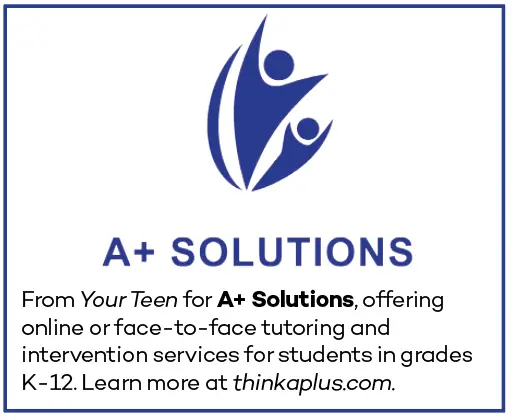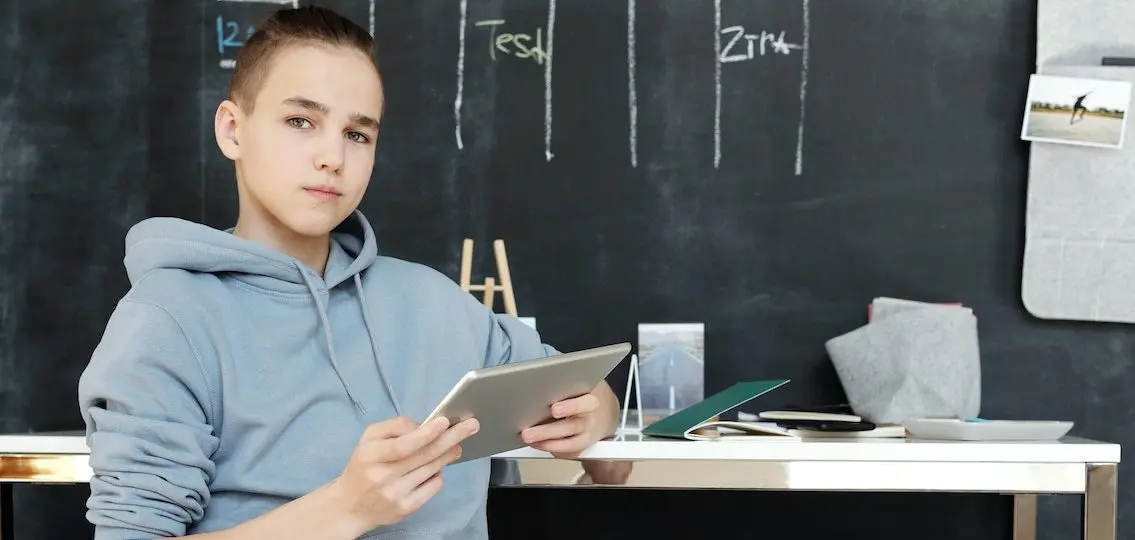For many parents, COVID has shined a spotlight on their teen’s seeming inability to get school work done. The pandemic has created so many challenges, and it is very possible that some of our teen’s difficulties are due to the fact that teens cannot be with their friends and have not been able to develop relationships with their teachers.
But what if you have a gut feeling that something just isn’t right?
To check that gut feeling, we reached out to Hadassa Meyers and Courtney Evenchik from A+ Solutions, an educational and psychological service provider. They have three goals:
- To help teachers know how to teach a child
- To help parents know how to support a child
- To help teens know how to advocate for themselves
They talked us through four situations that have been common learning problems that teens face.
#1: My Kid Just Doesn’t Want to Do the Work
Whether it is a struggle to get started or the fact that parents need to sit down next to their teens to get them through an assignment, lack of motivation has been is a common learning problem that teens struggle with. If students are learning remotely, it is hard to get them to focus when they are used to being in a different environment for school.
Meyers suggests that parents try and determine if this is a new problem or if it’s something that has been going on for a while.
Regardless, parents should acknowledge that it is difficult to work from home and validate the struggle that their teens are having. Then, they can move on to problem-solving. Evenchik recommends starting these conversations with two key words: “I’ve noticed. . .” Doing so opens the door for parents and teens to work together to come up with strategies that will help, such as having a good set up for learning that is not in the same space where teens relax or having a set schedule.
| [adrotate banner=”200″] |
However, if you’ve done all that and your teen is still struggling, then it might be time to see if there is something else going on.
#2: My Kid Seems to be Missing Something
Many parents are noticing that their teens seem to have gaps in knowledge that prevent them from completing assignments. The disruption in learning and loss of instructional time make it more complicated to determine the reason why a teen may be missing some skills or knowledge that they need.
Is it possible that there was something so specific that they didn’t do the previous work assigned and that’s why they can’t complete the next assignments? Or are they really missing pieces and now they are stuck?
If they have gaps, then we want to look at this and get a better sense of how they are processing information and examine maybe why they didn’t get those skills. This is when some testing could really help. Evenchik stresses that it’s important to remember that “educational testing does not mean that something is wrong with a child. Everyone learns and processes information differently.” Testing looks at everything from family history to social emotional ability to achievement and helps tease out exactly what’s impeding a teen from learning.
#3: My Teen Procrastinates
Parents have observed that their teens can’t complete anything “bigger than a quick worksheet.” When they get a large assignment, they push it off to do later, but then later never comes.

Here’s where parents can provide support by helping their kids learn what is called executive function. Executive function includes the following skills:
- Starting tasks
- Planning
- Organizing
- Working with memory
- Impulse control
- Emotional regulation
- Self-monitoring
Parents can get a calendar, work with their teen to break up the assignment into smaller chunks, and provide guidance to help them complete each part. Using a timer can also be a helpful strategy to stay on task. And certainly, there may need to be some conversations about resisting the “siren call” of tempting devices when they have work to do.
If parents can coach their kids through a big assignment, they will catch on. And with time, they will be able to manage themselves. However, some kids may need more support.
#4: I’m Not Sure My Child Understands What They’re Reading
In school, they read together. Now they have to do it on their own. Parents say that their child can’t tell them about what they’ve read and can’t respond if they have to write about it.
Meyers explains that often, teens will say, “Books are stupid. I hate reading.” What they could be saying is reading is really hard for them, but they may not be able to name what slows them down.
In this scenario, it could be a problem with paying attention. Maybe it is a matter of eliminating distractions so they can focus on what they’re reading. It could be a problem with decoding. One way to tell is to get an audio version of the reading. If listening while reading makes a difference, then there might be something going on with the reading skills. Or it could be a language problem. Further testing can help identify exactly what the problem is.

No matter the scenario, the key is to understand the why. When we know what is breaking down, then we can make interventions that will help.




